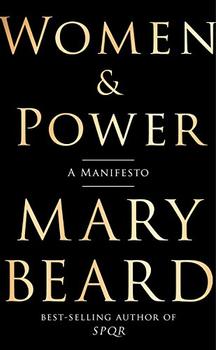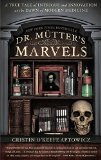Summary | Excerpt | Reviews | Beyond the book | Read-Alikes | Genres & Themes | Author Bio

Acting Now to End World Poverty
by Peter SingerThe Life You Can Save is about the billions of people starving, suffering,
and dying because of poverty and how we can and should help them without
suffering ourselves.
Singer's focus is the people who live in extreme poverty as the World Bank
defines it:
Those ... "not having enough income to meet the most basic human needs for adequate food, water, shelter, clothing, sanitation, health care or education ... The number of people whose income puts them under this poverty line [of living under $1.25 a day] is ...1.4 billion ..."
If people could be counted on to react to his alarming
statistics and descriptions of unnecessary suffering and death with a sense of
urgency and generosity, Singer could have written a pamphlet or relied on his
website to
present statistics on world poverty, outline his formulae for ethical giving,
and provide links to organizations that effectively help the poor and save
lives. People would read the information and donate – problem solved. But Singer
knows that persuading people to give is not easy or simple.
So before he makes his case for donating a percentage of our gross annual
incomes to the poor, Singer counters philosophical and economic objections to
giving, corrects misconceptions about the amount "rich" countries give to the
world's poor, and describes the mechanisms by which human beings convince
themselves that helping those in need, despite our "intuition that we should
help people in distress," is futile or unnecessary, or even unfair. Singer cites
studies that reveal that people react most powerfully to "an identifiable
victim," rather than to general information about people in distress. He also
presents evidence that we tend to be indifferent to the suffering of foreigners,
and are quick to feel that any aid is futile if a large number of people are at
risk:
"The implication is that people will give more support for saving 80 percent of 100 lives at risk than for saving 20 percent of 1,000 lives, even when the cost of saving each group is the same." Finally, Singer notes that "we are also much less likely to help someone if the responsibility of helping does not rest entirely on us."
If human beings are hardwired to be emotionally distant from those who suffer
across the globe from us, Singer locates people who have given 50 percent or
more of their incomes to the poor and dedicated their lives and resources to
alleviating their suffering and to saving their lives. And if the knowledge that
we are helping others doesn't provide enough satisfaction, Singer cites evidence
that giving triggers the feel-good centers in the brain. The most generous
people (from the very rich to those with only modest incomes) report feeling
happiest, most fulfilled, most sure that their lives have meaning.
These generous and committed exemplars move Singer's message from despair to
hope, but I think Singer's argument is most powerful when he demonstrates how
cheaply we can effect life-saving or life-altering changes in the lives of the
poor. Singer estimates that the medical cost of saving a life from poverty-related death in a poor
nation costs between $200 and $2,000 (Singer notes a Duke University Study that
estimated the cost of saving an American life to be $2.2 million!). It is
wonderful how much can be accomplished very cheaply: In Nepal, arsenic filters
to make drinking water safe cost $3.33 per family; efficient and smoke-reducing
cooking stoves that improve health cost $20
each; a family toilet in Kathmandu costs only $22. Blindness can be prevented
with cataract surgery that costs only $50 and life-changing treatment of
obstetric fistulas* costs between $100 and
$400:
"If you have a spare $450 and are thinking about whether to spend it on yourself or to use it to help others, it won't be easy to find anything that you need nearly as much as a fourteen-year-old girl with a fistula needs an operation. If you have only $50, you can make the same comparison between what the money means to you and what it could mean to someone who is unable to see because of an easily removable cataract."
While I am skeptical that, during this time of relative economic crisis, Singer will convince many people to donate a percentage of their annual gross incomes to the poor, it is impossible to read The Life You Can Save and not feel that the often modest needs of the world's poorest people must be met as soon as possible. Merely knowing that millions of people in the world are living each day on less than we spend on a bottle of water will succeed in moving many of its readers to spend money more carefully and to take some sort of philanthropic action. At the time of writing, The Life You Can Save website estimates that over $13m has been pledged since it opened in February 2009. Though Singer's plea is reasoned and calm, The Life You Can Save is rough reading, especially for readers used to "feel good" nonfiction or the narcissistic wallow offered by most self-help titles. The Life You Can Save is definitely a "feel bad" read and that's why it's so good and so important: Pour yourself a glass of tap water and settle down with it for a few hours. You won't escape into fantasy, lose weight, unclutter your closets or boost your self-esteem, but you might be shamed into doing somebody some good.
*An obstetric fistula is a severe medical condition in which a hole (fistula)
develops between either the bladder and the vagina or the rectum and the vagina,
as a result of a difficult childbirth or other trauma such as rape or
gynecological cancer. Now uncommon in the developed world due to
improvements in obstetrical care, obstetric fistulas are still a significant
problem in the developing world. Those who have read Abraham Verghese's
Cutting For Stone, in which one of the characters makes a name for
himself through his innovative treatments of obstetric fistulas in Ethiopian
women, will be familiar with the social stigma that comes with this painful and
debilitating condition.
![]() This review was originally published in The BookBrowse Review in April 2009, and has been updated for the
October 2010 edition.
Click here to go to this issue.
This review was originally published in The BookBrowse Review in April 2009, and has been updated for the
October 2010 edition.
Click here to go to this issue.

If you liked The Life You Can Save, try these:

by Mary Beard
Published 2017
"A modern feminist classic." - The Guardian
From the internationally acclaimed classicist and New York Times best-selling author comes this timely manifesto on women and power.

by Cristin O'Keefe Aptowicz
Published 2015
A mesmerizing biography of the brilliant and eccentric medical innovator who revolutionized American surgery and founded the country's most famous museum of medical oddities
Your guide toexceptional books
BookBrowse seeks out and recommends the best in contemporary fiction and nonfiction—books that not only engage and entertain but also deepen our understanding of ourselves and the world around us.